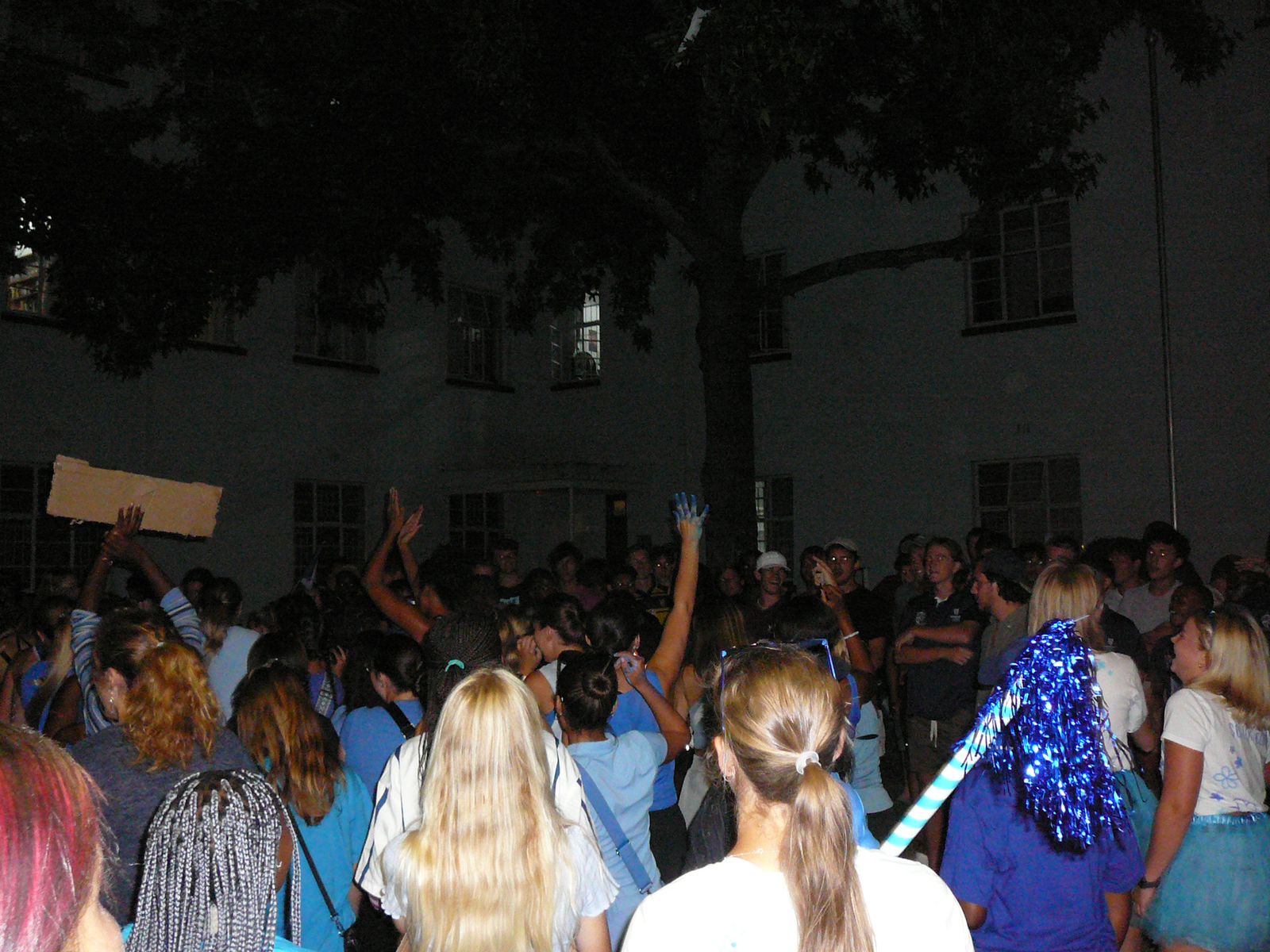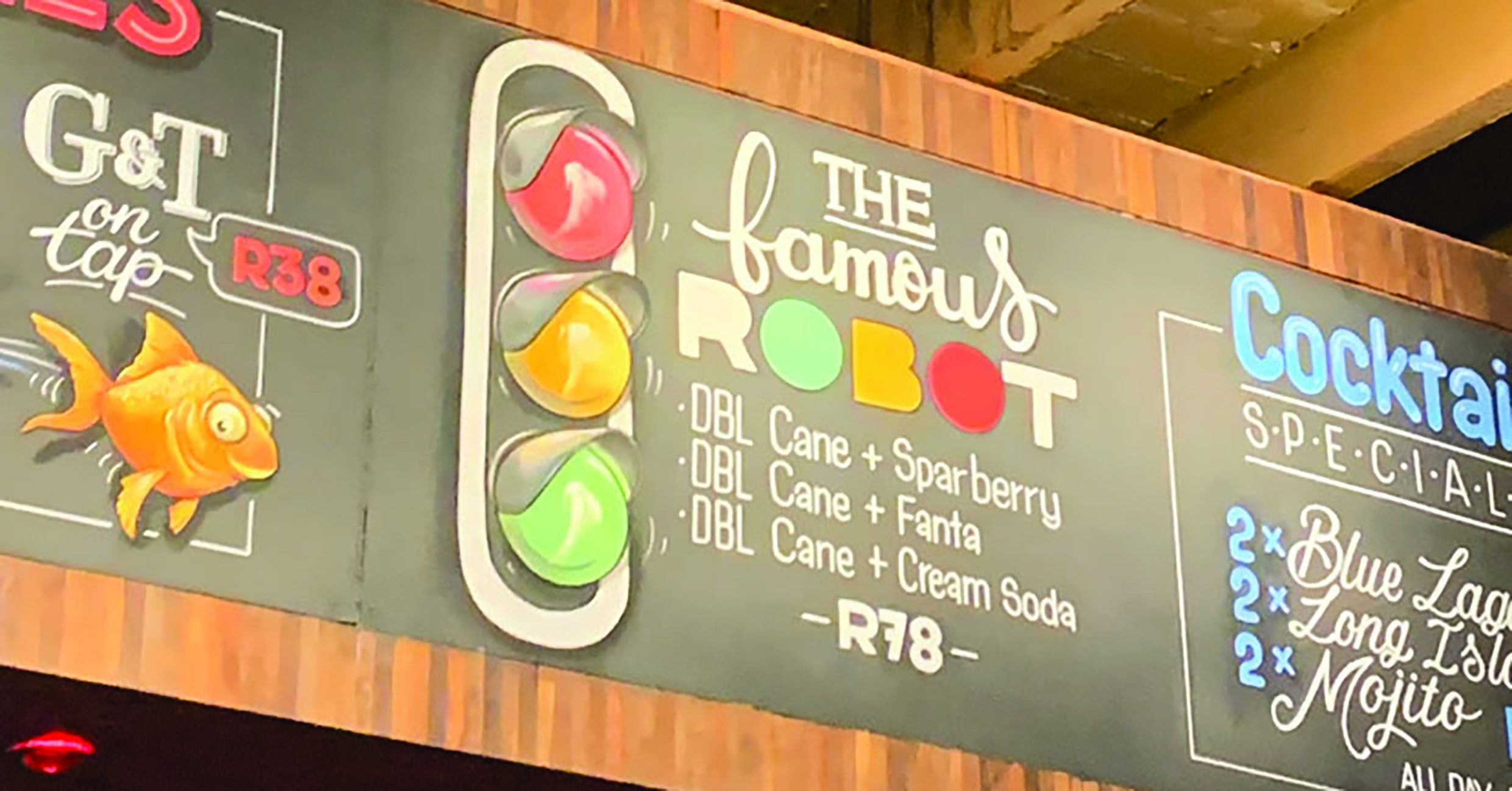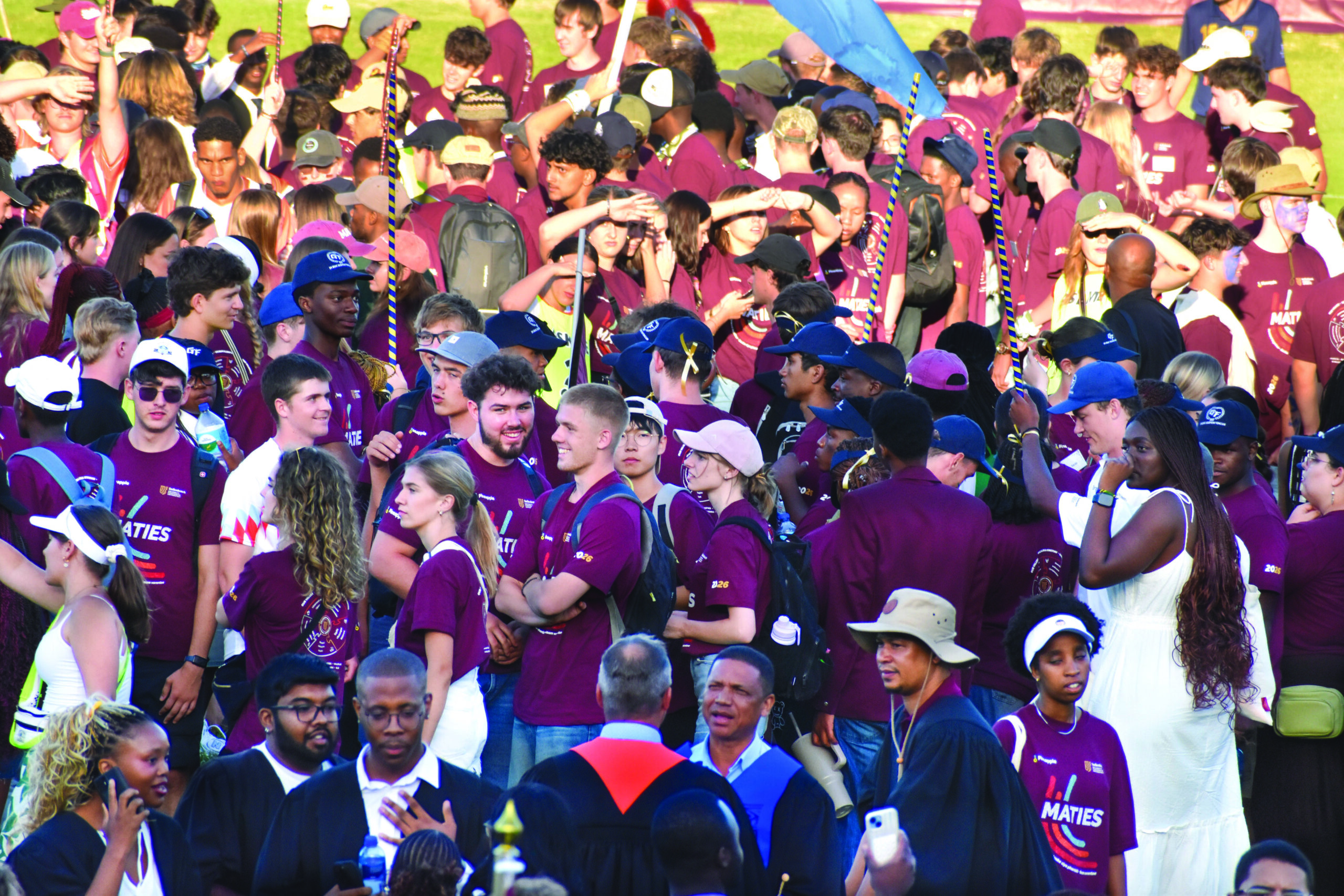By Skyla Thornton
Maties have again made it clear that they expect climate action from their academic institution. Fossil Free Stellenbosch, a climate change advocacy group on campus, aims to revive the movement of divestment, urging Stellenbosch University (SU) to support the future of its students.
Another effort to facilitate conversation about climate change between students, academics and university staff was the Umoja African Student Leaders Network’s recent summit focused on climate change.
Lize Myburgh, BAHons (Sociology) student, and Anaïs Breytenbach, LLM student, are leading the divestment portfolio for EcoMaties and challenging SU to divest from companies and corporations associated with the fossil fuel industry.
“If we are establishing a climate school and have access to the most sophisticated research regarding climate change, we as a university should not be investing in fossil fuels, which is a main driver in the climate crisis,” said Myburgh.
Students concerned with climate change are calling for massive changes to be made before time runs out, according to Breytenbach, who urges more students to support Fossil Free Stellenbosch’s cause.
“Rallying mass student support will place pressure on the university to take the necessary steps to divest from fossil fuels,” said Breytenbach.
“We have become morally obliged and duty bound to do everything in our power to bring about institutional change.”
It has been some time since Fossil Free Stellenbosch was last active on SU campus. “It was last active in 2017, and it died. Both of the original coordinators graduated in the same year,” said Steven Myburgh, leader of the original Stellenbosch divestment campaign.
For students involved with campus climate action, the efforts made for immediate climate action since 2017 have been futile. Long-term changes may be challenging to implement when students are on campus for a few years before graduating, and institutions are sceptical to implement changes in short timeframes.
According to Matthew Wingfield, PhD candidate and member of the Climate Justice Movement, Fossil Free Stellenbosch was purposefully silenced in its first iteration. He urged students to examine critically why the advocacy group was silenced.
The group’s being silenced “also indicates the different institutional climates at SU and the University of Cape Town (UCT), the latter of which has voted to divest”, according to Wingfield. He further said that “SU seems unwilling to take radical steps to address the climate crisis”.
Myburgh seemed to echo the same sentiment. “The fact that this has been successfully achieved at UCT is another reason why we became motivated to pursue the same goals at SU,” she said.
The Umoja Summit, which took place on 29 July, included important key speakers and stakeholders at SU. These speakers and stakeholders included Prof Guy Midgley, acting director for the School for Climate Studies at SU. The themes of the summit included African specificity and ethical leadership. This encouraged conversation with leaders within SU on the climate crisis and how to hold an institution like SU accountable.
Nina Hugo, chairperson of the United Nations Association of South Africa’s (UNASA) SU chapter and facilitator for the conference, said, “What we now need from the institution [SU] is to hear the student leaders out, and to see where their priorities are at, for them to start aligning their practices with our values because this world needs institutions to start being the leaders in this direction.”
As encouraged by climate change activists, student action requires mass cooperation and motivation from as many students as possible. “We need people to show up. We need support and passion behind this project if we are to succeed,” said Myburgh.
The prospect of the climate crisis is daunting for many and may lead to eco-anxiety and feelings of hopelessness for those concerned, but Tegan Gibaud, sustainable development goals executive of UNASA Stellenbosch, stated, “Moving towards renewables and divesting from fossil fuels can decrease climate anxiety and give us hope for a better future.”
On how people can be more involved, Breytenbach said, “Students and staff can get involved, firstly, by raising awareness surrounding the issues relating to climate change generally, SU’s investment of R100m into Sasol, and the objectives of the divestment campaign.”
Student activists have spoken: supporting divestment can be a defined action in choosing to believe in a viable future for fellow students and humanity itself.



